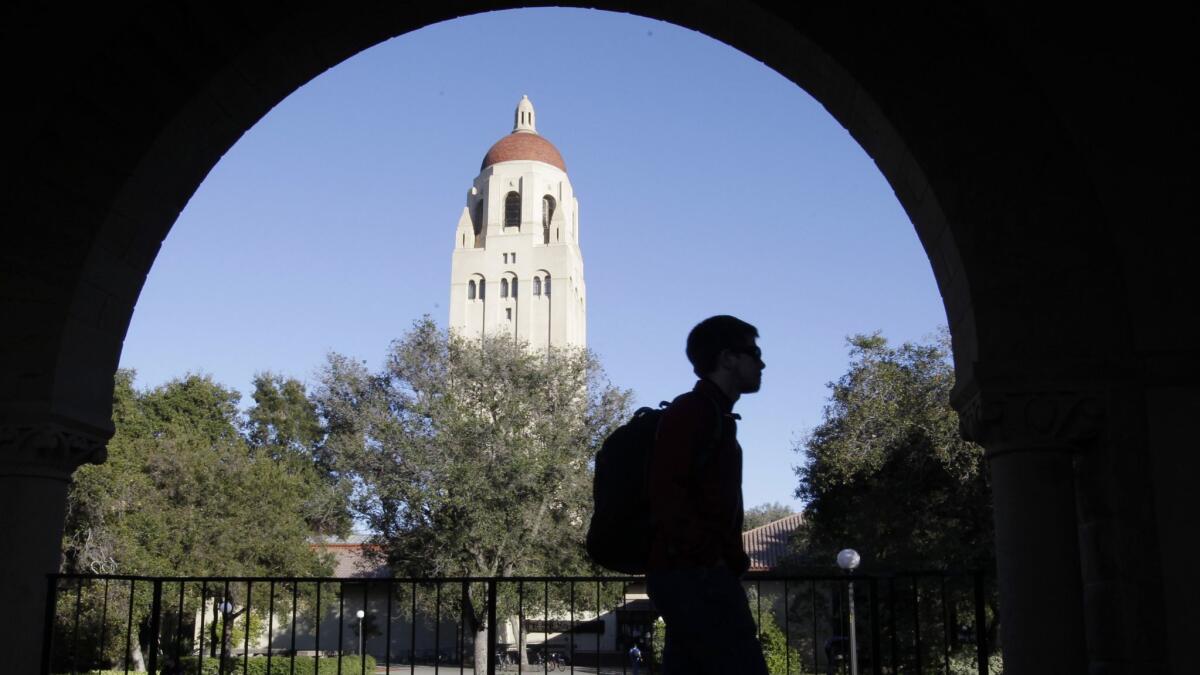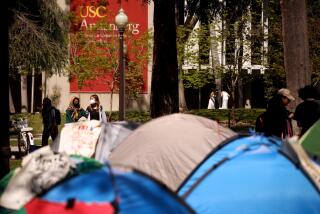Stanford is removing Junipero Serra’s name from parts of campus

Stanford University’s leaders plan to strip some prominent campus references to Junipero Serra, the canonized 18th-century priest who established the California mission system that critics now blame for decimating Native American communities.
The Franciscan friar was credited with bringing Catholicism to California when it was under Spanish rule, and he evangelized indigenous people. Critics note that he sometimes used harsh methods and many see him more as an oppressor than a protector of early Californians.
Serra’s name will be removed from a dormitory and an academic building, both now called Serra House, and from Serra Mall, one of the most prominent and recognizable features of the campus, the university announced Thursday.
Stanford’s board will seek approval from local and federal agencies to rename Serra Mall as Jane Stanford Way, after Jane Stanford who, with her husband, Leland, founded the university.
The committee that recommended that Serra’s name be removed included attorneys, Stanford students and faculty. University President Marc Tessier-Lavigne recommended prominently using Jane Stanford’s name.
The committee argued that Serra, who was canonized by the pope in 2015, created the mission system that “pervasively mistreated and abused California’s Native Americans. His founding and leadership of that system was at the time and remains today a central and inextricable part of his public persona.”
Forced labor supported the missions, critics point out, and Spanish troops garrisoned near some missions were blamed for spreading syphilis and other diseases that devastated local communities.
Native American students and staff and tribal leaders in Northern California told the committee that the impacts of the missions were long lasting and harmful: Generations as recent as their parents and grandparents had been sent to boarding schools to force assimilation. Those in the school community spoke “of visceral feelings of harm, trauma, emotional damage, and damage to their mental health” from seeing Serra’s name around campus, according to the committee’s report last month. They said the university also has failed “to acknowledge the history of the land that it occupies and the groups from whom the lands were taken.”
Serra is not the only name from the Mission era that appears on campus, but the committee recommended against any other changes without evidence of a person’s misconduct.
The committee also recommended that the university go beyond taking down names to correct the harm that some have experienced, in part by diversifying its campus naming practices and implementing relevant community and campus education programs. Members also said Stanford should acknowledge the history with plaques putting it into perspective.
Serra Mall, open only to pedestrians and bicycles, leads to Serra Street. The committee did not recommend trying to rename the street, but recommended that it bear an explanatory plaque.
Tessier-Lavigne in a statement argued that Jane Stanford deserves more recognition.
She was, he said, “instrumental in establishing the university, shaping its mission and vision, and guiding it through the many struggles of its early years, particularly after her husband’s death. Curiously, we currently have no major campus feature that appropriately honors her.”
Times staff writer Noah Bierman contributed to this report.
Reach Sonali Kohli at [email protected] or on Twitter @Sonali_Kohli.
More to Read
Sign up for Essential California
The most important California stories and recommendations in your inbox every morning.
You may occasionally receive promotional content from the Los Angeles Times.











